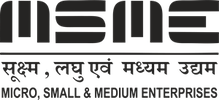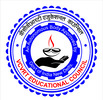We say food, water, shelter and clothes are basic needs of human life. Where every industry has its own contribution towards the GDP of our nation’s economy, standardizing their functions is now considered to be an essential activity, as growing demand has led to increase in production rate which in return has led to increase in the amount of waste pushed out by the industries.
There are many regions like Bangalore in Karnataka, Purulia in West Bengal, Coimbatore in Tamil Nadu, Surat and Ahmedabad in Gujarat, Vishakhapatnam in Andra Pradesh, Telangana, Gurgaon in Haryana and so on who are key players in textile industry. They compete with each other in increasing their contribution to satisfy the market demand. Many industries just care about their production rate not about the pollution they are causing, as a result water and air pollution in this region are higher than others.

Just think while the disposals are causing pollution that affects the entire population of the region, what will be its effect on the employees who are working in the industry. They are very much prone to occupational diseases. In most of the textile manufacturing region the water body passing through is highly polluted, making it unfit for drinking and using it for other household activities. In the same way, air pollution is also very high that people in and around the region suffer from asthma, bronchitis and other lung disorders.
Hence standardising their operations and following a set of strict rules becomes essential. Having a safety officer who constantly checks over functional safety, ensures industrial as well as environmental safety.
We at Nautical Point offer multiple courses related to Industrial Safety, Environmental Safety, Occupational Health. The basic qualification to pursue these courses are Secondary school certification – pass/fail, Higher secondary school certification – pass/fail, ITI, Diploma, any Bachelor Degree. For any clarifications or to know further details reach us out at www.nauticalcti.com.










